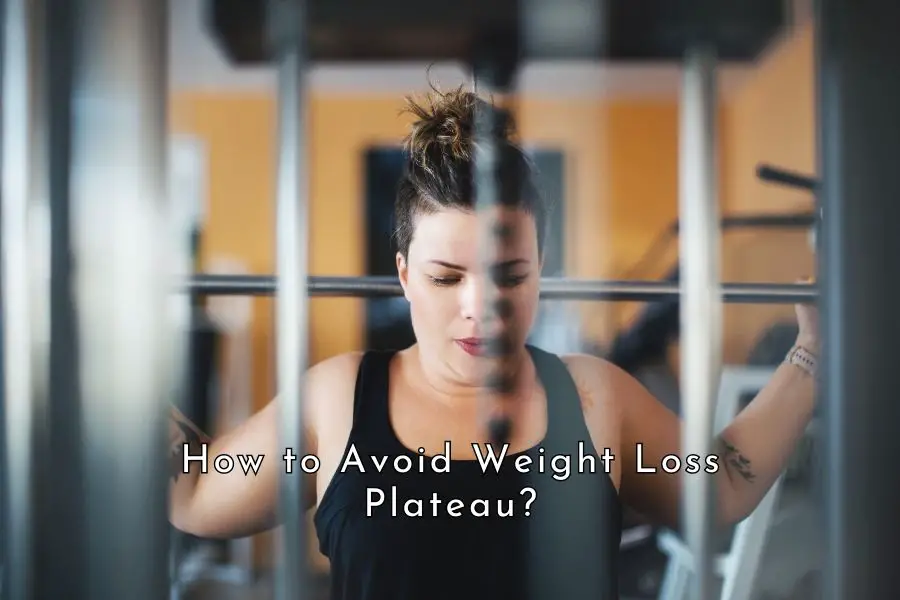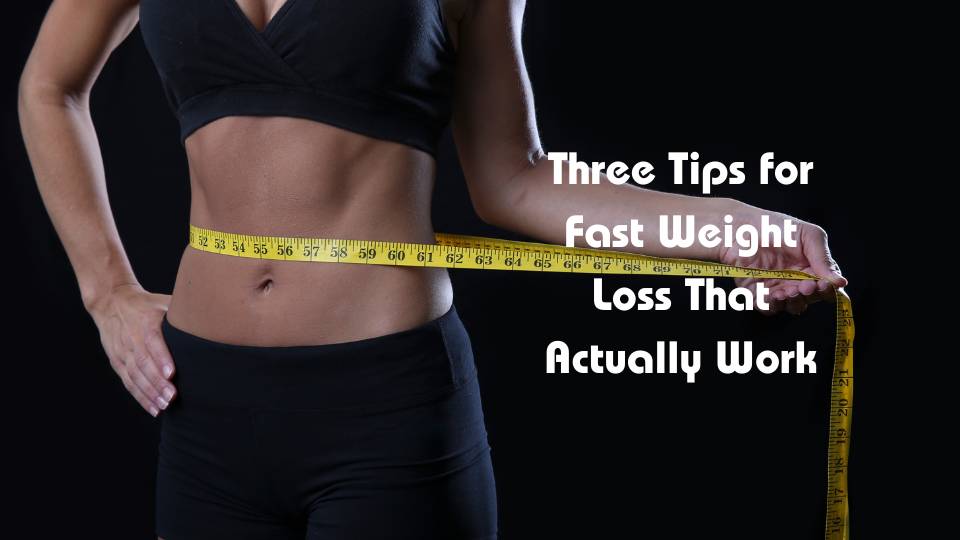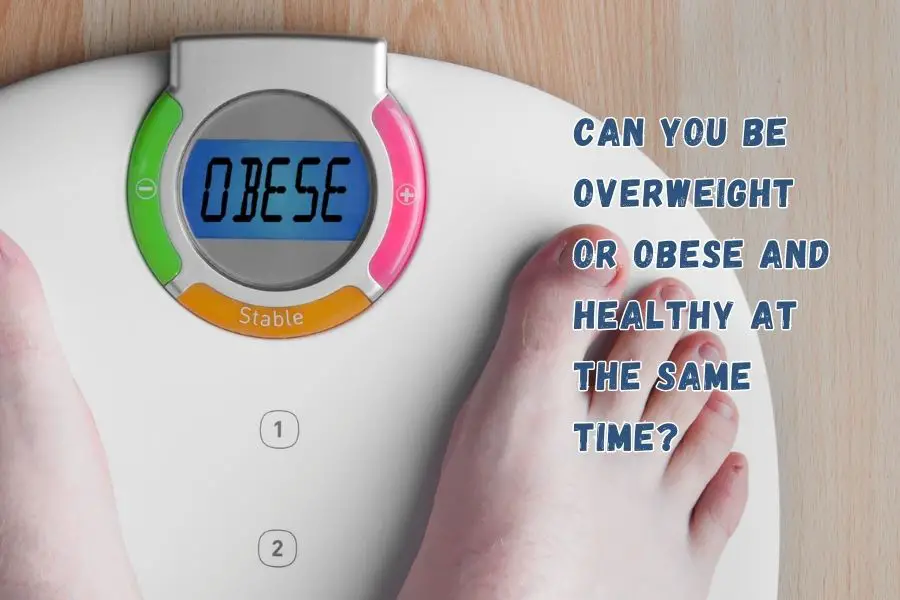It’s spring time and you want to lose some excess weight to get ready for the beautiful summer. You embark on a new diet and exercise program and succeed initially and you feel great about yourself.
But after awhile, despite still following the same program religiously, your weight loss slows down and eventually comes to a halt and you are frustrated and disheartened. What is going on? You’ve been sticking to what works for you, why is this happening?
This is a very common phenomenon called weight loss plateau. In this article, we will explain why this happens and provides nine science-based strategies to help you overcome weight loss plateau effectively.
What Causes Weight Loss Plateau?
A weight loss plateau refers to a prolonged period of little to no progress in losing weight, despite continued efforts to follow a diet and exercise plan. Below are the potential factors that can contribute to a weight loss plateau.
1. Metabolic Adaptation
If you have been losing weight consistently over a period of time, you have been able to maintain a calorie deficit during this time. However, your body will interpret this sustained deficit as a sign of imminent famine and begins to adapt and conserve energy to maximize your chances of survival. As a result, your metabolism may decrease, you’ll burn fewer calories than before, your weight loss will slow down and then eventually come to a halt. This phenomenon has been referred to as “metabolic adaptation”. [1]
Metabolic adaptation is great when you have to survive in the wild where food is scarce but really bad for us in today’s environment where calorie-dense food is readily available at relatively low cost.
2. Improved Efficiency
Your body is also able to adapt to increased physical activities over time and it will be able to burn fewer calories while performing the same type of activities, further contributing your weight loss plateau. [2]
Let’s take kickboxing as an example. If you have never done any type of combat art before, your first training session is likely to be a very intense workout for you because you have to concentrate on following instructions, copying moves, and positioning your hands and feet correctly. You’ll be sweating and exhausted by the end and you are likely to burn a lot of calories.
However, as you continue with regular kickboxing sessions, your body becomes more familiar with the techniques. Over time, the workout doesn’t feel as challenging or physically demanding as it was initially. This is because your body has adapted to the kickboxing routine, becoming more efficient at performing the same movements, and consequently, burning fewer calories during the activity.
This applies to all forms of physical activities. Given sufficient time, your body will become more efficient at carrying out the same physical movements, resulting in a decrease in calorie expenditure. This is why the Hadza, a traditional hunter-gatherer society living in Tanzania, despite being about 5 to 10 times more physically active than typical Westerners, are found to burn roughly the same amount of calories daily as Westerners with a sedentary lifestyle. [3, 4]
3. Muscle Gain or Loss
Both muscle gain and loss can contribute to your weight loss plateau problem.
If you engage in strength training or resistance exercises as a part of your weight loss program, you may gain muscle mass while losing fat. If this is the case, it is great. This is precisely what you want. However, because muscle is denser than fat, you may be in a much better shape but the number on the scale may not show much change.
On the other hand, a weight loss plateau may also occur if you experience a loss of muscle mass during your weight loss journey. Because muscle burns more calories than fat and other tissues, when you lose muscle mass, you burn fewer calories when at rest. This means your metabolism slows down and, consequently, your weight loss also slows down. [5]
4. Decreased Overall Physical Activity
You may subconsciously reduce your physical activity or exercise intensity over time, resulting in fewer calories burned, slower weight loss and ultimately contributing to a weight loss plateau.
When you restrict calorie intake over a period of time, your body may instinctively lower its level of physical activity as well. I have noticed this when I do a long fast. After the first couple of days of struggling not to eat at my regular meal time, I would go on to function normally and with a mental clarity that I don’t usually have. But after a week or so, I begin to feel a bit cold and while I still can perform all the daily activities, I tend to not be as physically active as when I eat normally.
Furthermore, some people may have the tendency to reduce their accidental exercises once they take up structured exercises. For example, if you join a cross-fit gym and go there 3 times a week as part of your weight loss plan, you might subconsciously feel that you’ve done enough exercise and subsequently allow yourself to be less active throughout the day. It’s natural for your body to seek rest after strenuous workouts, but this can lead to reduced calorie burn in other areas, slowing down your overall weight loss progress.
5. Chronic Stress
If your weight loss stalls, chronic stress could be one of the reasons. Here are some ways that stress can impact your weight loss efforts: [6, 7, 8, 9, 10, 11, 12, 13]
- Hormonal changes: When you experience stress, your body releases stress hormones like cortisol. Elevated cortisol levels can lead to increased appetite and cravings for high-calorie, unhealthy foods, particularly those high in sugar and fat. This can result in overeating and, subsequently, weight gain
- Emotional eating: Some people use food as a coping mechanism to deal with negative emotions and, when they are stressed, they reach for comfort food, leading to excess intake of unhealthy foods and calories
- Lack of sleep: Stress can affect the duration and quality of your sleep which, in turn, negatively impact weight loss by increasing your hunger hormone (ghrelin) and reducing your satiety hormone (leptin), which can result in increased appetite and reduced feelings of fullness
- Reduced physical activity: Stress can impair efforts to be physically active because it leads to fatigue, lack of motivation, and decreased physical activity levels, resulting in lower calorie expenditure
- Stress-eating cycle: Stress can create a cycle of stress-eating and weight gain. When you are under stress, you are more likely to eat for comfort, leading to weight gain. Weight gain, in turn, can lead to more stress and negative emotions, perpetuating the cycle
- Increased fat storage: Some research suggests that stress may lead to a preference for storing fat in the abdominal area, which is associated with an increased risk of various health issues, including obesity.
6. Lack of Sleep
If you have been doing everything right but are still hitting a weight loss plateau, check if you have been getting enough quality sleep.
The lack of sleep quality and duration can negatively affect your body’s normal hormone levels, metabolism, and overall behavior, making it more challenging to lose weight.
Below are some ways in which insufficient sleep can impact your weight loss efforts: [14, 15, 16, 17, 18, 19, 20].
- Hormonal imbalance: Sleep deprivation can disrupt the balance of hunger-regulating hormones, such as ghrelin and leptin. When you don’t get enough sleep, ghrelin, the hormone responsible for stimulating appetite, increases and leads to increased feelings of hunger. At the same time, leptin, the hormone that signals satiety, decreases, causing a reduced feeling of fullness after eating. As a result, you are more likely to increase the overall food intake and find it difficult to lose weight
- Cravings for unhealthy foods: Sleep deprivation can lead to a greater desire for sugary, fatty, and processed foods, which are often high in calories and contribute to weight gain
- Impaired glucose regulation: Insufficient sleep can impair the body’s ability to regulate blood sugar levels, leading to insulin resistance and an increased risk of weight gain and diabetes
- Reduced energy expenditure: When you are sleep-deprived, your resting metabolic rate can decline, resulting in fewer calories burned. In addition, you may feel fatigued and less motivated to engage in physical activity, leading to a decrease in energy expenditure and fewer calories burned throughout the day
- Increased stress and emotional eating: Lack of sleep can elevate stress levels, leading to emotional eating as a coping mechanism. People may turn to food to find comfort and temporarily alleviate stress, which can hinder weight loss efforts
- Disruption of circadian rhythms: Irregular sleep patterns and insufficient sleep can disrupt the body’s natural circadian rhythms, which can affect metabolism and lead to weight gain
- Reduced recovery: Sleep is essential for muscle repair and recovery after physical activity and if you don’t get enough sleep, your body’s ability to build muscles will be adversely affected. As mentioned above, muscle is an active organ that burns a lot more calories than fat and other tissues.
How to Combat Weight Loss Plateau?
Below are 9 effective strategies to help you combat weight loss plateau.
1. Have Diet Breaks
Having breaks from your weight loss diet can help maintain a high metabolic rate, avoid weight loss plateau, and potentially help you lose even more weight.
Research has shown that having breaks from energy restriction can deliver greater weight and fat loss than having consistent energy restriction as well as result in greater improvements in insulin sensitivity. [21, 22, 23]
In a study by Byrne et al (2018) published in the International Journal of Obesity, 51 men with obesity were randomized to 16 weeks of either: [24]
- Continuous energy restriction where their energy intake was equivalent to 67% of weight maintenance; or
- Intermittent energy restriction where they were alternating every two weeks between energy restriction (energy intake equivalent to 67% of weight maintenance) and energy balance (energy intake at maintenance level).
By the end of the protocol, on average, the group that had diet breaks (intermittent energy restriction) lost significantly more weight and fat than the group that didn’t have diet breaks.
In particular, the weight loss and fat loss of the group that underwent intermittent energy restriction were respectively 4.8 kg and 4.3 kg more than the group that underwent continuous energy restriction. In addition, although both groups’ resting metabolic rates dropped, the intermittent energy restriction group’s resting metabolic rate was still 389 calories higher than the continuous energy restriction group.
What this means is if you restrict calories to lose weight but having periods where you eat at maintenance levels, you likely end up losing more weight despite consuming more calories overall because your resting metabolic rate is less likely to be affected.
This is the reason why intermittent fasting seems to work better than consistent calorie restriction when it comes to weight loss. When you are intermittent fasting, you go through a long period without any food coming in, but when it’s time to eat, you feast up and eat until satiety. The signal that your body is getting is that: everything is fine, there are periods of no food but food is still coming in aplenty eventually. There is no sign of starvation and your body’s metabolism doesn’t slow down.
However, when you consistently restrict calorie intake to lose weight, your body is forced to burn reserved fat for fuel, but the signal it is getting is that food coming in is always never enough to function, it is in a famine environment, it is in danger, it’d better reserve calories to maximize its chance of survival, resulting in a slowdown metabolism.
In summary, if you opt for calorie restriction to lose weight, have diet breaks to prevent your metabolism from slowing down. Alternatively, try intermittent fasting as a way of restricting calories to lose weight.
2. Go Zero Carbs
If you hit a plateau and are still eating carbs, try to cut out all plant food and go zero carb for a month or two to break that plateau.
Research has found that low-carb diets are extremely effective for weight loss and it is easy to understand why. [25, 26]
When you eliminate carbohydrates, you are left with protein and fat, which are far more satiating than carbohydrates. As a result, when you eat just protein and fat, you feel fuller and more satisfied for longer, leading to a reduction in cravings and snacking between meals and a lower calorie intake overall.
Furthermore, when you eliminate carbohydrates, you are able to maintain low insulin levels which promote fat burning and discourage fat storage, making it easier to access and utilize stored fat for energy and help you lose weight.
Lastly carbohydrates can cause the body to retain water. When carb intake is lowered or cut off, your body will shed the excess water weight, leading to initial rapid weight loss.
Eliminating carbohydrates is the key reason why so many people have reported losing weight successfully with the carnivore diet.
Therefore, if you feel like you’ve hit a weight loss plateau, try going zero carb to break that plateau. You can use it as a way to reach your ideal weight and then make decision about what diet you want to be on in the long term later.
3. Get Enough Proteins and Build muscles
If your weight loss program comprises creating a consistent calorie deficit and a lot of cardio exercises, you may want to consider including resistance training exercises and increasing protein intake. This will help you gain muscle mass and increase your basal metabolic rate and break that weight loss plateau.
As mentioned above, muscle burns more calories at rest compared to fat and other tissues. The more muscle you have, the more calories you burn even when you are not exercising. Therefore, resistance training (e.g. using resistance bands, dumbbells, kettle bells, weight machines, or your own body weight) accompanied by sufficient intake of good quality protein (e.g. beef, lamb, pork, chicken, eggs) should be an integral part of your weight loss program.
4. Switch Up Your Exercises
Because your body can adapt and become more efficient when you continuously perform the same exercises, switching up your exercise program regularly by introducing new exercises or varying the existing exercises can help you lose weight and combat weight loss plateau.
Below are a few examples of ways that you can vary your exercises to accelerate weight loss:
- Add variety. If you haven’t done resistance training before, add weight lifting, body weight exercises, or resistance bands. If you don’t do much cardio, try running, cycling, swimming or boxing
- Try new workouts. Experiment with new workout classes or exercise routines that you haven’t tried before, for example, joining a dance class, kickboxing, yoga, pilates or taking up a new sport
- Changes reps, sets and intensity. When strength training, alter the number of reps and sets you perform. For instance, switch between higher reps with lighter weights and lower reps with heavier weights. You can also vary the intensity of your cardio exercise. Some days, opt for longer, steady-state cardio sessions, while on others, push yourself with shorter, high-intensity interval training sessions
- Use different equipment. Utilize various exercise equipment available at your gym or home. For example, use dumbbells, kettle bells, resistance bands, or stability balls to add diversity to your strength training routine.
5. Keep Your Brain Busy
Engaging in challenging mental activities, such as problem-solving, critical thinking, and intense concentration, can indeed contribute to your weight loss efforts because you’ll burn more calories doing them than being idle or doing passive activities.
The brain is an incredibly active organ and consumes a significant amount of energy. Despite accounting for only about 2% of the body weight, the brain consumes approximately 20% of the total calorie expenditure. [27]
When you participate in challenging mental tasks, your brain’s neural circuits work harder, and more blood flow is directed to the brain to supply the required energy. This increased neural activity and blood flow result in an elevated calorie burn compared to when the brain is at rest.
For example, if you are a lawyer preparing to defend your most high-profile client in court the next day, you are likely to burn a lot more calories than when you are sitting on the couch binge-watching CSI on Netflix.
Extremely intense intellectual activities can burn an extraordinary amount of calories. According to Robert Sapolsky, Stanford professor of neurology and neurosurgery, a chess grand master can burn up to 6,000 calories a day during a tournament, three times what an average person burns in a day. For example, a match between Anatoly Karpov and Garry Kasparov in the 1984 World Chess Championship was called off due to health concern after Karpov lost 22 pounds. In 2018, Russian chess grandmaster Mikhail Antipov was found to have burned about 560 calories in two hours of playing at a tournament. Even non-professional chess players burn more calories playing chess than when at rest, although to a lesser extent compared to grand masters. [28, 29, 30]
This characteristic of the brain’s energy demand could be one of the reasons why children burn so much more energy than adults, especially the elderly. Because they have so much to learn, their brains are busy soaking up new things all the time, and they burn a lot of energy. In contrast, as we get older, we tend to become lazy, we think we know everything we need to know to earn a living, we stay in our comfort zone, and we don’t learn new stuff very often unless we are forced to. And we burn a lot fewer calories as a result.
In summary, challenging mental activities can increase your calorie expenditure and pursuing mentally stimulating tasks can not only support your weight loss efforts but also improve your brain functions and quality of life.
6. Increase Non-Exercise Activity
Although working out is important, increasing your non-exercise physical activity throughout the day can have a significant impact on your weight and your health.
On average, we are awake for about 16 hours a day and most of us can only spend about 30-60 minutes a day to do exercises. But if we are able to sneak in accidental exercises during the remaining 15 hours of the day like standing at work instead of sitting, taking a stroll during lunch break, taking the stairs instead of the lift, doing a few squats while waiting for the kettle to boil, etc. we can substantially increase our overall physical activity levels and burn a lot more calories.
Research has shown that spontaneous physical activity or accidental exercises can have a major impact on your metabolic rate and total calorie expenditure. [31, 32, 33, 34, 35, 36]
7. Manage Stress
Due to the negative impact that chronic stress has on your calorie intake, weight gain and general well-being as discussed above, managing stress is crucial to support your weight loss efforts.
To reduce stress, it is important to find ways to sort our major issues or problems you have in life. While adopting stress-reduction techniques like exercise, meditation, mindfulness, yoga, seeking support from family, friends and professionals and getting enough sleep can help to a certain extent, if fundamental problems in your life remain unresolved, you will only be scratching the surface.
Please check out our post on addressing chronic stress and building a positive mindset to support weight loss for a more in-depth look into this issue.
By addressing stress and its impact on stress hormones and eating behaviors, you can improve the chance of successful weight loss and overall well-being.
8. Get Enough Sleep
To support weight loss and overall well-being, it is crucial to prioritize quality sleep and establish consistent sleep patterns.
Most adults typically need 7-9 hours of sleep per night. By ensuring sufficient rest, you can help regulate hunger hormones, reduce cravings, have more energy for physical activity, and better manage stress, all of which can positively impact weight loss efforts.
Here are some tips to help you improve the quality and duration of your sleep: [37, 38]
- Have a consistent sleep schedule: Go to bed and wake up at the same time every day, even on weekends. This helps regulate your body’s internal clock, makes you fall asleep easier, and improves sleep quality
- Wind down before bed: Activities like reading, listening to soothing music, gentle stretching, deep breathing or other relaxation techniques help calm your body down and signal to your body that it’s time to wind down
- Limit screen time before bed: Avoid using electronic devices with screens, such as smartphones, tablets, and computers, at least an hour before bedtime. The blue light emitted by these devices can disrupt your body’s production of the sleep hormone melatonin
- Create a comfortable sleep environment: Make your bedroom conducive to sleep by keeping it dark, cool, quiet, and free of electronic device. In addition, invest in a comfortable mattress and pillows that support good sleep posture
- Limit food, drink, and cigarettes before bed: Avoid heavy meals, nicotine, caffeine, alcohol, and other beverages close to bedtime, as they can interfere with your ability to fall asleep and stay asleep. It’s best to stop eating a few hours before bed so that your meal is completely digested by the time you are asleep
- Get regular exercise: Regular physical activity can improve sleep quality, but try to avoid vigorous exercise close to bedtime, as it may make it harder to fall asleep.
9. Other Ways to Boost Metabolism
In addition to the strategies to increase calorie expenditure and accelerate weight loss, you can also try out the following strategies to see if they work for you: [39, 40, 41, 42, 43, 44, 45, 46, 47]
- Drink water. Drink water does burn a bit more calories and if you drink it during meal time, it may make you feel fuller and hence reduce your food intake. However, drinking more water than your body’s need is unhealthy and drinking water during meal time can dilute your digestive enzyme and potentially affect the breakdown and absorption of nutrients
- Have cold shower or cold plunge. Exposing your body to cold water will cause it to work to maintain its core temperature and burn calories in the process. However, the calorie burn from this process is relatively small and may not significantly impact weight loss or calorie expenditure compared to more substantial physical activities.
- Sauna. Sauna causes body temperature rise and you start to sweat to cool down. As a result it can lead to the loss of water and temporary weight loss but does not directly burn body fat. There may be an increase in your heart rates and a small rise in calorie expenditure but it is unlikely to be significant
- Wear a weighted vest. Wearing a weighted vest can increase calories burned because it adds resistance to your movements, help you strengthen and tone muscles, make your exercises and physical activity more demanding, and can contribute to your weight loss
- Eat spicy food. Spicy foods contain compounds like capsaicin, which can temporarily increase your metabolism and lead to a slight boost in calorie expenditure. This thermogenic effect can potentially contribute to weight loss, but the impact is likely to be very modest
- Drink coffee. Coffee contains caffeine, which is a natural stimulant that can temporarily boost metabolism and increase calorie expenditure. This thermogenic effect may slightly enhance the body’s ability to burn calories.
- Drink green tea. Green tea contains catechins which have been shown to have a slight thermogenic effect, increasing calorie expenditure and boosting metabolism. This can lead to a modest increase in fat oxidation.
While we don’t think some of the above strategies to boost metabolism are a good idea (e.g. drinking coffee or tea, eating spicy food or drinking lots of water), we have listed them here for completeness and it is up to you if you want to try out to see if they are beneficial in your case.
Conclusion
In conclusion, weight loss plateau can be very frustrating but understanding the factors that contribute to this phenomenon can help you develop effective strategies to break through the plateau and continue making progress towards your weight loss goals.
We suggest that you look at your diet and exercise program and your lifestyle in general to identify the potential factors that prevent you from reaching your goals and then explore the strategies listed above to determine which ones may be suitable in your case. We hope you can rejuvenate your weight loss journey by implementing these science-based approaches.
Other posts you might be interested in:
How to Help a Loved One Lose Weight Successfully
The Best and Most Healthy Way to Lose Weight and Keep It Off
Three Science-Backed Strategies for Fast Weight Loss
How to Lose the Last Few Pounds on the Carnivore Diet?
Top 15 Tips to Lose Weight Fast with the Carnivore Diet
Can You Get Fat on the Carnivore Diet?
Is Carnivore the Best Anti-Aging Diet Around?
How to Avoid Weight Gain During the Holidays
Who Might Benefit from a Strict Carnivore Diet?
Tips On Raising Children On a Carnivore or Animal-Based Diet
Disclaimer: The information in this post is for reference purposes only and is not intended to constitute or replace professional medical advice. Please consult a qualified medical professional before making any changes to your diet or lifestyle. Please check out our disclaimer for more detail.





